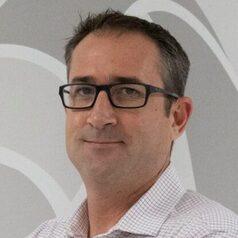
Aaron N. Johnson
Associate Professor of Developmental Biology, Arts & Sciences at Washington University in St. Louis
We use functional genomics approaches to identify mechanisms that regulate development, regeneration, and physiology. Our ongoing projects use multiple model organism to understand muscle development and regeneration, to model structural and functional birth defects, and to identify interorgan communication pathways that regulate muscle physiology in response to infections.
Less ![]()
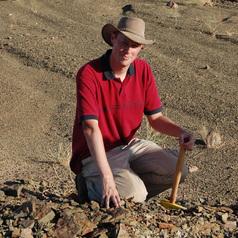
Aaron W. Hunter
Science Guide & Visiting Researcher, Earth Sciences, University of Cambridge
Aaron Guide-Lecturer and Research visitor at the University of Cambridge and is also an adjunct researcher at both the University of Western Australia and Western Australian Museum. Aaron was Senior Lecturer of Palaeontology and Biostratigraphy/Adjunct Senior Lecturer at Curtin University, Western Australia from 2013 to 2017. Aaron had a Visiting Fellowship at Clare Hall, University of Cambridge, UK in 2014, collaborating with the Sedgwick Museum of Earth Sciences, and is now a Life Member.
After completing his BSc in Geology from Kingston University, specialising in mineral deposits and petroleum geology, and his MSc in Palaeobiology at the University of Bristol, Aaron gained his PhD in echinoderm taphonomy and palaeoecology from the University of London (Birkbeck College & University College London) in 2006.
Aaron has completed Postdoctoral Fellowships at the University of Burgundy, France (CNRS), University of Tokyo, Japan (Royal Society JSPS Fellow and JSPS Bridge Fellow) and University of Göttingen (DAAD), furthering his research into both fossil and extant echinoderms including crinoids (sea lilies) and asterozoans (starfish and brittle stars). In 2010 Aaron was appointed Senior Lecturer at the PETRONAS University of Technology, Malaysia where he established the Malaysian Centre of Palaeobiodiversity (MCPB) and was Deputy Director of the South East Asia Carbonate Research Laboratory (SEACARL), supervising MSc and PhD students and was course director for the undergraduate Palaeontology and Physical Geology courses. During this period he held a short term fellowship at NESCent, Duke University USA and was a visiting associate at the American Museum of Natural History.
Less ![]()
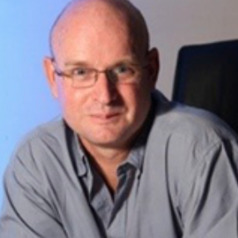
Aart-Jan Verschoor
Senior Manager - Agrimetrics, Agricultural Research Council
Aart-Jan Verschoor has a PhD in agricultural economics and rural development. He joined the ARC in 2003, and is the Senior Manager for Agrimetrics since 2014. Responsibilities include guidance of post graduate students and interns and managing a team of statisticians. He is active in inter-institutional, trans-disciplinary R&D that integrates natural and social science. He manages an EU funded development project and conducts scientific evaluation (M&E) of various projects. He has contributed and authored scientific and popular publications. He is married and has three children, likes nature, coin collecting, music and sport.
Less ![]()
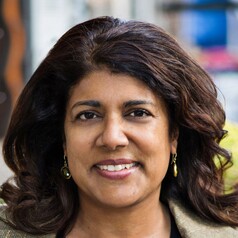
Aarti Gupta
Professor of Global Environmental Governance, Wageningen University
Aarti Gupta is Professor of Global Environmental Governance at Wageningen University in the Netherlands. Her research focuses on the contested politics of transparency and accountability in global environmental and climate governance, and the challenges of anticipatory governance of novel technologies, such as biotechnology and climate engineering. She has published widely on these topics, including Transparency in Global Environmental Governance: Critical Perspectives (2014, MIT Press). She is principal investigator of the TRANSGOV research project on the Transformative Potential of Transparency in Climate Governance (https://trans-gov.org/) and co-lead of the REIMAGINE consortium project on anticipatory climate governance in vulnerable regions of the global South. She is a member of the Scientific Steering Committee of the Earth System Governance (ESG) research alliance, and series co-editor of the Cambridge Elements in Earth System Governance, published by Cambridge University Press. She holds a PhD in Environmental Studies from Yale University, with a background in political science, international relations, and science and technology studies.
Less ![]()

Aarushi Bhandari
Assistant Professor of Sociology, Davidson College
My current research trajectory focuses on the attention economy; the economies constructed for information and communication technologies (ICTs), especially the internet and social media. My book Attention and Alienation: Reflections on the Many promises of ICTs for Social Progress is under contract with Columbia University Press. This book presents quantitative data on internet and mobile penetration across the world from 1990-2020 to unpack the historical impacts these technologies have had on different elements of global change, including international development and social movements. Throughout the book, I weave narratives about my own experiences growing up as a young millennial girl during the Nepali Civil War. These narratives provide the contexts, positions and perspectives that inspire my analysis of the data.
Expanding on my interests in the phenomena of technology and attention, my newer projects focus on the study of meditation and mindfulness as radical tools to reclaim our attention from “big tech” firms and social media platforms. As a teacher, I am especially keen to uncover this line of inquiry to support my students for whom digital and social media are integral aspects of living. My next book project will be at the nexus of the study of attention, mindfulness and the future of technology.
Finally, I am also continuing my work on communication technologies and society through interdisciplinary collaborative projects on the social dimensions of rapidly evolving Artificial Intelligence (AI) and language models.
Less ![]()
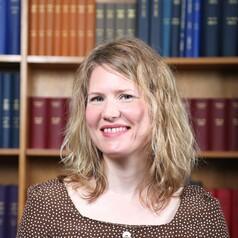
Aase Villadsen
Senior Research Fellow, Institute of Education, UCL
I am a Senior Research Associate at the UCL Centre for Longitudinal Studies.
My educational background is in Sociology with an undergraduate degree from York and a master’s degree from Oxford, and a doctorate degree in Social Intervention also from Oxford.
My work is focused on cohort studies that follow large group of individuals through life. I have worked extensively with the Millennium Cohort Study, which involves around 19,000 participants born in the UK around the millennium. I am particularly interested in children’s and adolescent’s social, behavioural and health outcomes and the underlying factors causing these, with the aim of informing policy.
Less ![]()

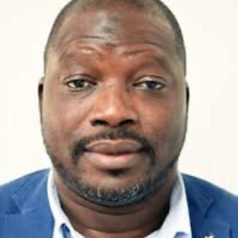
Abba Mallum
Clinical Radiation Oncology Consultant, University of KwaZulu-Natal
Dr Abba Mallum is a Clinical Radiation Oncology consultant and honorary clinical fellow in academic training at the University of KwaZulu-Natal/Inkosi Albert Luthuli Central Hospital in South Africa. He also serves as an honorary consultant and visiting lecturer at the University of Maiduguri Teaching Hospital in Maiduguri, Borno State, Nigeria, where he earned his medical degree. As the founder of Global Onco Care South Africa, Dr Mallum has helped bridge the gap between public and private healthcare by providing accessible, high-quality, low-cost healthcare, particularly in South Africa's North-West region where public oncology services are limited. He obtained a Master’s in Medicine from Stellenbosch University, South Africa, and is currently pursuing his doctoral training at the University of KwaZulu-Natal, South Africa.
Less ![]()
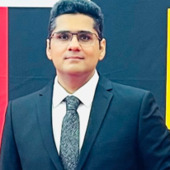
Abbas Yazdinejad
Postdoctoral Research Fellow, Artificial Intelligence, University of Toronto
Less ![]()
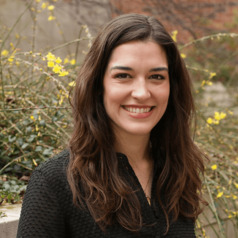
Abbey Stockstill
Assistant Professor of Art History, Southern Methodist University
Abbey Stockstill received her B.A. in Near Eastern languages and civilizations from the University of Pennsylvania and her Ph.D. in the history of art and architecture from Harvard University. Her most recent work focuses on the intersection of architecture, landscape, urbanism and identity in the medieval Mediterranean, particularly in the region of the Islamic West known as the Maghrib (comprising present-day Morocco, Algeria and Tunisia). Her first book manuscript, Marrakesh & the Mountains: Landscape, Identity, and Urban Planning in the Medieval Maghrib (forthcoming), addresses the way the landscape of Marrakesh helps define the ethnosocial identities of two medieval dynasties, the Almoravids and the Almohads. This research has been supported by a number of international institutions including the American Institute of Maghrib Studies, the Oxford Research Centre for the Humanities (TORCH), Dumbarton Oaks Research Library and Collections and the École Nationale d’Architecture du Maroc.
She welcomes applications from prospective M.A. and Ph.D. students with interests in Islamic art and architecture, especially those whose topics may fall under the research categories listed below.
Less ![]()
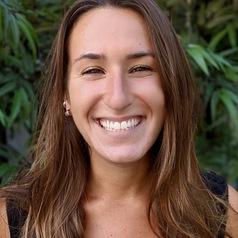
Abbie Cohen
PhD Candidate in Education, University of California, Los Angeles
Abbie Cohen is a PhD candidate at UCLA's School of Education and Information Studies in the Urban Schooling division. Abbie is a critical qualitative researcher focusing on the intersection of youth-serving community-based education non-profits and private philanthropy in public education. She uses participatory methods to explore issues of race, class, power, and privilege in educational institutions and organizations.
Less ![]()
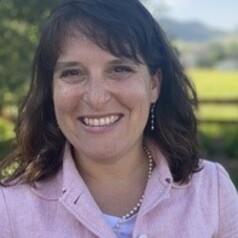
Abbie B. Liel
Professor of Civil Engineering, University of Colorado Boulder
Abbie Liel is a professor of engineering at the University of Colorado. Her interests include seismic collapse performance prediction of structures and structural systems; building code provisions for extreme loads, such as earthquakes or snow; nonlinear modeling of structures, particularly non-ductile reinforced concrete; propagation of modeling and design uncertainties in structural performance assessments; life safety risks and economic losses associated with extreme loading; and earthquake performance of housing and schools internationally.
Less ![]()
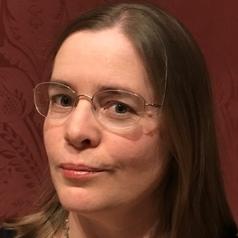
Abby Chandler
Associate Professor of History, UMass Lowell
Expertise
Early American History, Public History
Research Interests
Legal and Political History, the Eighteenth-century Anglo-American Atlantic world, and Material Culture.
My current book project examines rebellions in 1760s British North America from both local and imperial perspectives.
Education
Ph D: History, (2008), University of Maine at Orono - Orono, ME
Dissertation/Thesis Title: At the Magistrate's Discretion: Sexual Crime and New England Law, 1636-1718
MA: American History, (2002), University of Massachusetts Amherst - Amherst, MA
Supporting Area: Public History
BA: History, (1996), Colby College - Waterville, ME
Less ![]()

Abby Gilsenan
PhD Candidate in the School of Social Policy, University of Birmingham
Abby Gilsenan is currently a fourth year PhD student in the School of Social Policy at the University of Birmingham. Her research is focused on the impact of statutory sex education in Catholic secondary schools on the lives and experiences of young women. She is particularly interested in the way youth sexuality is problematised and understood within policy contexts, and the ways we can centre young peoples’ voices within research. Her work draws on feminist sociological work, education policy and youth studies.
Less ![]()
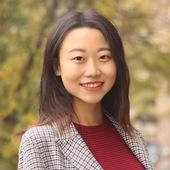
Abby Youran Qin
Ph.D. candidate at School of Journalism & Mass Communication, University of Wisconsin-Madison
Less ![]()
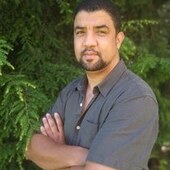
Abderrahim Ouarghidi
Assistant Teaching Professor of African Studies and Anthropology, Penn State
Less ![]()
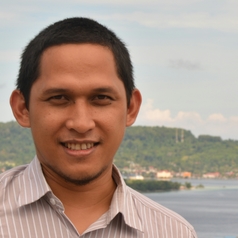
Abdil Mughis Mudhoffir
My study focuses on the relationship between violence and state capitalism in post-authoritarian Indonesia.
Less ![]()
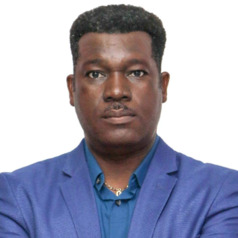
Abdoulaye Diabaté
Head of Medical Entomology and Parasitology, Institut de Recherche en Sciences de la Santé (IRSS)
Prof. Abdoulaye Diabaté is head of Medical Entomology and Parasitology at the Research Institute in Health Sciences (Institut de Recherche en Science de la Santé (IRSS) /Centre Muraz) in Bobo-Dioulasso, Burkina Faso and the principal investigator of Target Malaria Burkina Faso. Prof. Diabaté joined Target Malaria in 2012 when he established Target Malaria Burkina Faso. He has since become a leader in malaria research and in genetic approaches to malaria reduction in Africa. Prof. Diabaté was trained as a doctor of animal biology and ecology at the University of Ouagadougou and obtained his PhD in parasitology from the University of Montpellier II (France) in 2003. He completed a post-doctoral fellowship in 2005/2009 at the Laboratory of Malaria and Vector research of the National Institutes of Health (NIH) in the USA. He returned to Burkina Faso in 2009, where he now works at the Research Institute in Health Sciences heading the medical entomology laboratory.
Professor Diabaté has been an invited speaker in several prestigious universities including Harvard University to catalyse a lasting collaboration between IRSS and other research centres or universities across the world. He is a recipient of the Royal Society Pfizer award 2013, was awarded the Grand Challenges Star in Global Health grant and the MRC/DFID African Leader Scheme grant, the PAMCA award for his contribution to the medical entomology field and the “Chevalier des Palmes académiques” of the Government of Burkina Faso in recognition of his significant contribution to scientific research in Burkina Faso. He was interviewed by several prestigious international and national media, including the BBC, Netflix, The New York Times, the National TV channel of Burkina Faso. He is a member of the African Academy of Sciences.
Professor Diabaté and his team of eight researchers based in the United States and Burkina Faso received the 2019 Newcomb Cleveland Prize at the American Association for the Advancement of Science (AAAS). For more information, please read this blog by Raymond J. Monnat, Jr. M.D.
More recently, he has been named as one of the 10 global winners of the prestigious Falling Walls Science & Innovation Prize 2023. An interview was published on the Falling Walls website titled ‘ERADICATING MALARIA: GENETIC SOLUTIONS AND AFRICAN LEADERSHIP‘.
Less ![]()
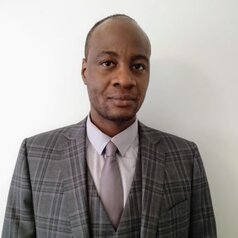
Abdoulkarim Idi Cheffou
Associate Professor in finance and Dean of Research, ISG International Business School
Abdoulkarim Idi Cheffou is Associate Professor at ISG International Business School. He holds a Ph.D. in Management Sciences and is specialized in the field of Finance.. His current professional activity is teaching and research? His areas of publication are Entrepreneurial Finance, Financial Markets and Institutions, Corporate Governance, Corporate Finance, Intrapreneurship and Open Innovation. His teaching specializations are Financial Markets and Institutions, Portfolio Management, Corporate Finance, Entrepreneurial Finance, Cash Management.
Less ![]()
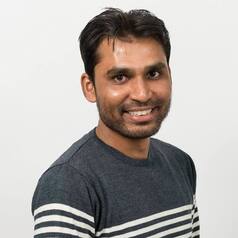
Abdul Aziz
Lecturer in Media and Communication Studies, School of Arts and Social Sciences, Monash University
Less ![]()
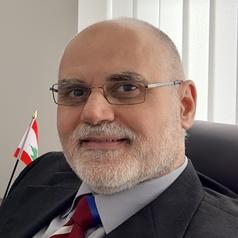
Abdul Sadka
Professor and Director of Aston Digital Futures Institute, College of Engineering and Physical Sciences, Aston University
Professor Sadka is a Chartered Computer & Communications Engineer (CEng) with 27 years' worth of research leadership, business engagement and significant contributions to the area of AI-enabled visual media technologies. He is the founding Director of Aston Digital Futures Institute. This is a nationally leading powerhouse of research and innovation expertise, making strides in developing groundbreaking generative AI solutions to automate industry workflows and enhance the customer's quality of experience.
Professor Sadka previously served as the Director of the Institute of Digital Futures at Brunel University London (2020-23) and as the Lead Academic of Brunel Fellowship Academy 2022-23, reporting directly to the Provost in both roles.
He served as the founding Director of “Brunel Digital Science & Technology Hub” (2018-20) and as the Director of the Centre for Media Communications Research (2012-18). Professor Sadka is also the former Head of Electronic & Computer Engineering and Digital Media (2006-12).
During the period 2020-23, he chaired the Government-supported West London FE-HE Partnership Group, representing seven Universities and 6 FE Colleges, developing the post-COVID skill and knowledge transfer agenda for the UK digital industries. Professor Sadka led the development of the L7 degree apprenticeship and L6 top-up programmes in digital specialisms such as data analytics and EEE. He served on the Steering Board of the NEM technology platform, which shapes the European strategic research agenda in networked media.
Thus far, he has worked on over £15m worth of research projects as Principal Investigator, and supervised more than 50 Research Assistants and PhD students to completion. Professor Sadka has published widely, with over 300 papers in refereed journals and conferences, three patents and four books, including a seminal textbook titled Compressed Video Communications, published in 2002.
He frequently serves on industry advisory boards and evaluation panels, and provide consultancy services to the tech industry in the area of digital media, AI and data analytics. He has had several entrepreneurial business engagements with particular success in the health tech and real estate sectors. He is a fellow of the HEA, IET and BCS.
Less ![]()
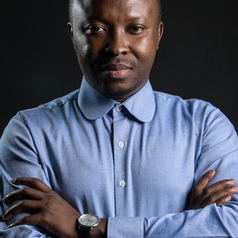
Abdul Latif Alhassan
Associate Professor in Development Finance & Insurance, University of Cape Town
I have a PhD in Insurance Finance from University of Cape Town with research focus covering the industrial organisation of financial services industry (banks, insurance) in Africa and the broad area of development finance.
Less ![]()
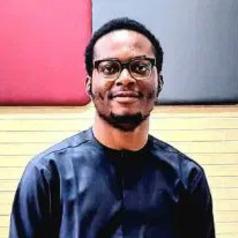
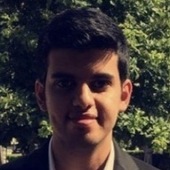

Abebayehu Aticho
PhD student, researcher and conservationist, Jimma University
I have been working on people-bird interaction studies for the past couple of years, focusing on indigenous people's relationships with local bird populations and ethno-ornithology. My research has taken me to remote communities (i.e., the Nuer community in western Ethiopia), where I have witnessed firsthand the deep and harmonious connection these people have with the birds around them. I am passionate about learning from these communities and using my research to help conserve both the birds and the traditional knowledge of the people who live alongside them. Through my work, I hope to contribute to bridging the gap between Western science and indigenous ways of knowing, ultimately leading to more holistic and effective conservation efforts. I am excited to continue learning and making a contribution at the intersection of ecology, culture, and conservation.
Less ![]()
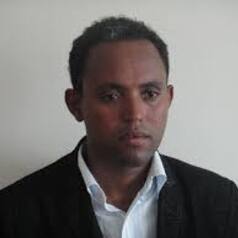
Abebe Beyene
Associate Professor, Department of Environmental Health Science and Technology, Jimma University
My PhD was in Environmental Science and was obtained from Vrije Universiteit Brussel. I have been working as a full-time professor at Jimma University, Ethiopia and visiting professor at Vrije Univeristiet, Brussels. The courses that I have mostly offered are pollution prevention and control, Environmental and Social Impact Assessment, Nature Based Solution for Sustainable Development and Water and Sanitation. I am currently active on research and project management.
Less ![]()
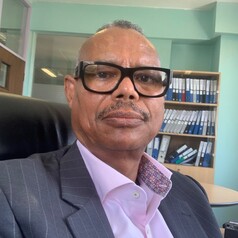
Abebe Shimeles
Honorary Professor, University of Cape Town
Abebe Shimeles is currently Honorary Professor at University of Cape Town and Senior Economic Advisor. Previously Mr Shimeles has worked for The African Development Bank, The World Bank, UNECA, ACTIONAID, and Addis Ababa University in different capacities. His recent research interest includes macroeconomic policy analysis, tax reforms, poverty , labor market integration, migration issues in Africa and impact evaluation of policy interventions. He holds a PhD in economics from University of Goteborg, MSC from Delhi School of Economics and undergraduate degree in economics from Addis Ababa University.
Less ![]()

Abel Lorenzo-Rodríguez
PhD Doctor with international mention, Universidade de Santiago de Compostela, Universidade de Santiago de Compostela
Doctor en Historia Medieval. Graduado en Historia, máster en Historia medieval, contratado predoctoral Xunta de Galicia, con anterioridad también becario JAE-Intro del Consejo Superior de Investiaciones Científicas. He sido contratado predoctoral Xunta de Galicia (2019-2022) desarrollando labores docentes y de investigación vinculadas a mi proyecto de tesis doctoral "Horcas y azotes. Categorías sociales y genealogía del castigo en el noroeste ibérico en la Alta Edad Media (700-1200)". En el curso 2021-2022 fui Visiting Scholar en la Faculty of History de la Universidad de Oxford. Mis principales intereses en la investigación son el análisis social del castigo corporal y la violencia en las sociedades altomedievales del noroeste hispano.
Less ![]()

Abel de Lorenzo Rodríguez
Chercheur invité, LaMOP (UMR 8589), Université Paris I-Panthéon Sorbonne & Postdoctoral Fellow, Facultade de Historia, Instituto de Investigación de Humanidades, Universidade de Santiago de Compostela., Universidade de Santiago de Compostela
Less ![]()
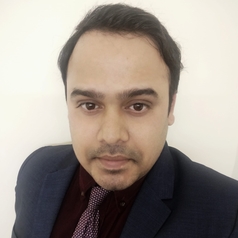
Abhimanyu Thakur
Postdoctoral Scholar in Molecular Engineering, University of Chicago Pritzker School of Molecular Engineering
Dr. Abhimanyu Thakur, PhD, is a biomedical scientist who loves to dig into scientific research questions and invent feasible solutions to broadly pertinent scientific questions with multidisciplinary methods. In particular, he is working to better understand the role of exosomes in diverse aspects of science, including cancer biology, theranostic, and stem cell biology. Exosomes are nanovesicles (30-200 nm) found in extracellular space of various cell types, and in biofluids; having diverse functions including intracellular communication in physiological as well as pathological conditions. Dr. Thakur has expertise in exosome, cancer research, biosensing, drug delivery, neurodegenerative diseases, and biomedical applications of machine learning.
He holds three patents and his research work have been published in top-tier peer-reviewed scientific journals, including Science Advances (IF: 14.14), Nature Communication (IF: 14.92), Protein and Cell (IF: 15.328), Biosensors and Bioelectronics (IF: 12.545), Bioactive Materials (IF: 14.119), Advance Functional Materials (IF: 19.92), Chemical Engineering Journal (IF: 16.744), Journal of Biomedical Sciences (IF: 12.771), CNS Neuroscience & Therapeutics (IF: 7.035), and Brain Behavior Immunity (IF: 19.23).
His honors include prestigious awards or grants including UChicago CORE Grant Award, National Science Foundation Funded I-Corp at Polsky, University of Chicago, a Young Investigator Award by American Association for Cancer Research, Korean Cancer Association, Global Young Scientists Summit Award by Nanyang Technological University, Singapore, the Chow Yei Ching Research Award, and Outstanding Academic Performance Award by the City University of Hong Kong.
Less ![]()
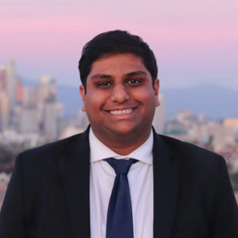
Abhiram Reddy
Research Assistant at the Center for Security and Emerging Technology, Georgetown University
Abhiram (Abhi) Reddy is a Research Assistant on the CyberAI Project at the Center for Security and Emerging Technology (CSET). At CSET, Abhi conducts research on election-focused disinformation campaigns, the impacts of AI-generated content, and foreign influence operations on social media.
Abhi is also pursuing a M.S. in Foreign Service at Georgetown University, concentrating in Science, Technology, and International Affairs with a certificate in Asian Studies. At Georgetown, Abhi focuses on studying AI governance, Indo-Pacific foreign policy, U.S.-China relations, and the effects of emerging technologies on political systems.
Previously, Abhi worked as a Senior Digital Strategist at MissionWired where he implemented innovative digital programs for political campaigns and international non-profits. He holds a B.A. in International Relations from the University of Southern California and is based in Washington D.C.
Less ![]()
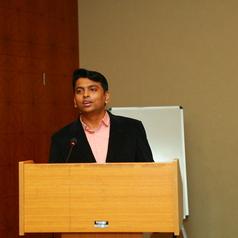
Abhisek Kuanr
Lecturer in Marketing, University of Essex
Dr Abhisek Kuanr is a Lecturer (Assistant Professor) in Marketing at Essex Business School. Before joining EBS, he worked as an Assistant Professor, Marketing at the Jindal Global Business School, India. He also has more than 15 years of Industry experience working as a sales and marketing professional. His research interests have revolved around consumer behaviour, anti-consumption and influencer marketing. His work thereby includes the pursuit of determinants of anti-consumption behaviours, drawn from a diverse set of psychology, sociology, and marketing theories. His work has been published in leading journals such as Psychology & Marketing, Journal of Consumer Behaviour, and International Journal of Information Management Data Insights.
Less ![]()
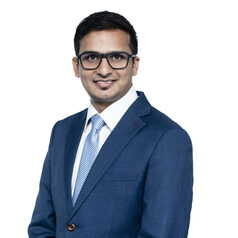
Abhishek Gupta
Associate Director at the EDHEC Infrastructure Institute, EDHEC Business School
Abhishek is an Associate Director at the EDHEC Infrastructure Institute and the Head of infraMetrics® Product Development. He has more than 10 years of experience in asset management and alternative investments including stints at Goldman Sachs and Partners Group. He holds a Masters of Science in Financial Engineering from Nanyang Business School and a Bachelor of Technology from the Indian Institute of Technology. Ten years in alternative investment research. Partners Group & Goldman Sachs alumnus.
Less ![]()
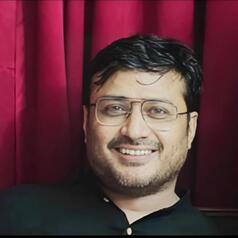
Abhishek Kumar
Lecturer in Banking and Finance, University of Southampton
Abhishek is a lecturer at Southampton Business School at the University of Southampton. He teaches on international banking and advanced time series analysis. His research interests include commodity prices and balance sheet crises in emerging economies, structural macro-econometrics, new Keynesian models and applied econometrics.
Abhishek worked as Associate Fellow at CSEP (Brookings India) from 2021 to 2022 and was a visiting researcher at the University College London (UCL) from 2019 to 2020. He is currently a non-resident Associate fellow at CSEP.
In the past, he has worked as a Consultant for Queen Mary Global Policy Institute, Asian Development Bank (Manila) and UNU-WIDER. He also worked as a Project Associate at the National Institute of Public finance and Policy (NIPFP), University of Wisconsin, Milwaukee, USA, and National Health Service, UK. Abhishek finished his PhD at the Indira Gandhi Institute of Development Research (IGIDR), Mumbai, in 2022. He has M.Phil. degrees from IGIDR and the University of Delhi, and postgraduate and bachelor’s degrees from the University of Delhi.
Less ![]()
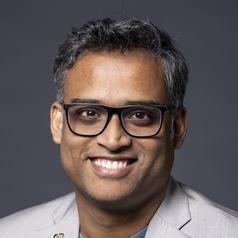
Abhishek Ray
Assistant Professor of Information Systems and Operations Management, George Mason University
Dr. Abhishek Ray is an assistant professor at the Information Systems and Operations Management Area at the Costello College of Business, George Mason University. Dr. Ray holds a Ph.D. (MIS) from Purdue University and a B. Tech. (Electrical Engineering) from NIT Allahabad and an MBA from IMT Ghaziabad. Dr. Ray worked in IT consulting for five years before entering academia. His research interests include digital and decentralized social networks, game-theoretic policy concerns in online platforms, and big data computational challenges. He uses economics, linear/nonlinear optimization, operations research, and machine learning for his research. He has presented at leading conferences such as ICIS, IEEE Blockchain, and EVOCOP. His work has been published in top journals such as Information Systems Research, IISE Transactions and Journal of Management Information Systems.
Less ![]()
- Market Data





















